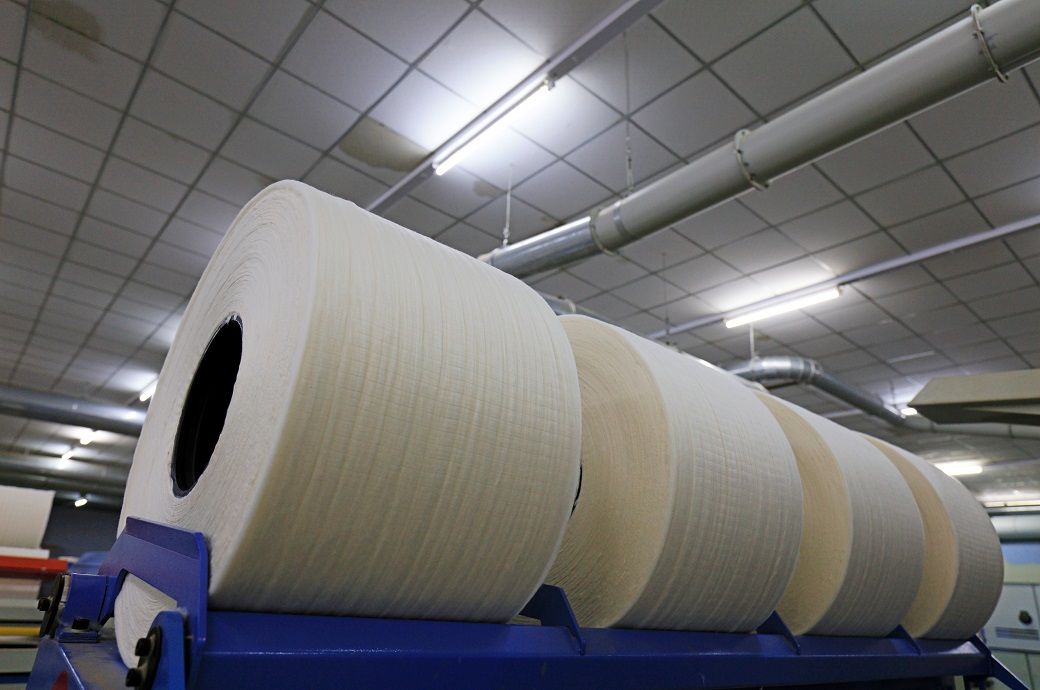
Although Panipat’s recycled yarn remained stable amid average demand, its raw materials, such as cotton comber and recycled polyester fibre, showed fluctuations. Cotton comber gained ₹2-4 per kg in the last couple of days, but recycled polyester fibre eased by ₹3-4 per kg in the market. Traders reported that market sentiments remained unchanged, maintaining the stability of recycled yarn prices.
The Ludhiana market witnessed a rise of ₹3 per kg in cotton yarn prices. The market experienced different dynamics contributing to the price increase. A trader from Ludhiana told Fibre2Fashion, “Mills are not inclined to offer lower prices to buyers. Traders and stockists have exhausted their previously bought stocks, so they need to purchase cotton yarn at higher prices. Higher demand from the downstream industry also supported cotton yarn prices.”
In Ludhiana, 30 count cotton combed yarn was sold at ₹258-268 (approximately $3.07-3.19) per kg (inclusive of GST); 20 and 25 count combed yarn were traded at ₹248-258 (approximately $2.95-3.07) per kg and ₹253-263 (approximately $3.01-3.13) per kg, respectively; and carded yarn of 30 count was noted at 238-243 (approximately $2.83-2.89) per kg today, according to trade sources.
Meanwhile, the Delhi market showed stability in cotton yarn prices, with average demand from the domestic consumer industry. According to trade sources, the increase in cotton yarn prices was driven by the rise in ICE cotton. A trader mentioned that mills received a boost in selling their stock after the rise in ICE cotton and are attempting to boost buyers’ confidence to secure new deals.
In Delhi, 30 count combed knitting yarn was traded at ₹260-262 (approximately $3.10-3.12) per kg (GST extra), 40 count combed at ₹282-289 (approximately $3.37-3.45) per kg, 30 count carded at ₹237-239 (approximately $2.83-2.85) per kg, and 40 count carded at ₹262-265 (approximately $3.13-3.18) per kg today.
India’s home textile hub, Panipat, observed an increase in cotton comber prices, which gained ₹3-5 per kg in recent days. However, recycled polyester fibre prices eased by ₹2-4 per kg following a decline in polyester yarn prices. Recycled yarn prices did not see any significant movement. A trader from Panipat commented that raw material prices have fluctuated according to the movement in upstream products. Crude oil prices eased in the global market, leading to a decrease in the polyester value chain. However, cotton comber prices rose due to reduced supply caused by slow production of combed yarn.
In Panipat, 10s recycled PC yarn (Grey) was traded at ₹78-82 (approximately $0.93-0.98) per kg (GST paid). Other varieties and counts were noted at 10s recycled PC yarn (Black) at ₹53-56 (approximately $0.63-0.67) per kg, 20s recycled PC yarn (Grey) at ₹94-100 (approximately 1.12-1.29) per kg and 30s recycled PC yarn (Grey) at ₹125-130 (approximately $1.49-1.55) per kg. Cotton comber prices were noted at ₹94-98 (approximately $1.12-1.17) per kg. Recycled polyester fibre (PET bottle fibre) noted at ₹68-73 (approximately $0.81-0.87) per kg today.
In north India, cotton prices increased by ₹25 per maund of 37.2 kg due to the continued rise in ICE cotton. Despite slow demand from the downstream industry, cotton prices are being supported as there will be no new supply for the next 30-60 days. Traders mentioned that the poor quality of north Indian cotton is a deterrent to a price rise, but the increase in ICE cotton and the long wait for new cotton arrivals have fuelled prices. The arrival of seed cotton has reduced to almost zero in all producing states in north India. However, cotton trade continues as ginners and stockists are selling their existing stocks.
Cotton arrivals have reduced to negligible levels in all the producing states—Haryana, Punjab, and Rajasthan. However, stocked cotton was traded between buyers and sellers. In Punjab, cotton prices ranged from ₹5,700 to ₹5,710 (approximately $67.89-68.01) per maund of 37.2 kg, while in Haryana, prices ranged from ₹5,600 to ₹5,610 (approximately $66.70-66.82). In upper Rajasthan, cotton was priced between ₹5,400 and ₹5,700 (approximately $64.31-67.589) per maund. Bikaner line cotton was sold for ₹5,800 to ₹5,810 (approximately $69.01-69.20) per maund. In lower Rajasthan, cotton was priced at ₹53,300 to ₹55,600 (approximately $634.81-662.20) per candy of 356 kg.
ALCHEMPro News Desk (KUL)
Receive daily prices and market insights straight to your inbox. Subscribe to AlchemPro Weekly!